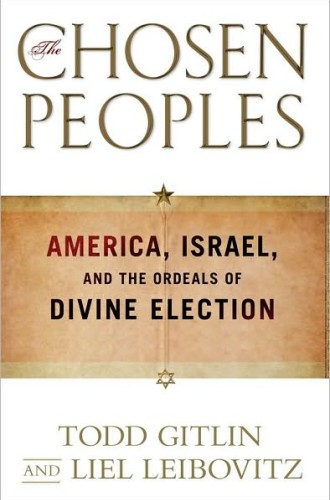The Chosen Peoples, by Todd Gitlin and Liel Leibovitz
Todd Gitlin of Columbia University and Liel Leibovitz of New York University have written a thoughtful critical volume on the roots and costs of chosenness as it pertains to historical and contemporary Israel and the United States. Their approach is nonpolemical, but their tone implies an important critique of the ideology of chosenness, a summons to do better (that is, repent) and a recognition that supposed chosenness is as much an ordeal as it is a gift. The authors are fully aware of the prerational force of entitlement and privilege that is exercised in the ideology of chosenness.
As a former noncommissioned officer in the Israel Defense Forces, Leibovitz comes at the question of Israel's chosenness from the inside. Gitlin's social location is not indicated, but perhaps his work also reflects a Jewish sensibility. In any case, the authors trace the trajectory of Israel's chosenness from the claims of the Bible to contemporary practice.
The authors recognize that chosenness from the beginning, with Abraham, is an odd claim that "invites incomprehension, skepticism, and obstreperousness" on the part of the chosen, even founding father Abraham himself. In the face of rational wonderment about being chosen, they allow that faith "renders questions of the literal truth of the scriptural stories unnecessary, even petty." But when it comes to the immensity of God and God's intent, faith will not "be obstructed by observed facts."





